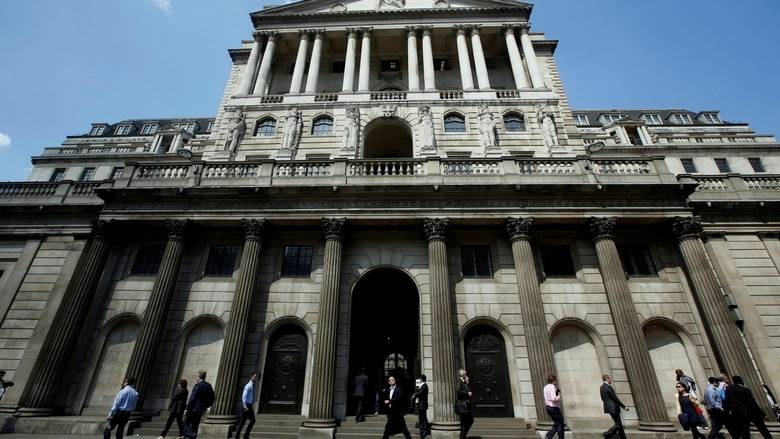Bank of England leaves policy steady but says it is ready for more stimulus to counter effects of virus.
The Bank of England (BoE) held off from implementing further stimulus measures on Thursday but said it was ready to take more action to counter the country’s biggest economic slump in more than 300 years, caused by the coronavirus lockdown.
In what it called an “illustrative scenario”, the BoE said it saw a plunge of 14 percent in Britain’s economy in 2020 followed by 15 percent rebound in 2021.
Such a scenario would require very significant monetary and fiscal stimulus, it said.
The BoE kept its benchmark interest rate at an all-time low of 0.1 percent and left its target for bond-buying, most of it British government debt, at 645 billion pounds ($797bn).
Two of its nine policymakers – Michael Saunders and Jonathan Haskel – voted to increase its bond-buying firepower by 100 billion pounds ($124bn).
“However the economic outlook evolves, the bank will act as necessary to deliver the monetary and financial stability that are essential for long-term prosperity and meet the needs of the people of this country,” Governor Andrew Bailey said.
“This is our total and unwavering commitment.”
He said the BoE expected “the recovery of the economy to happen over time, though much more rapidly than the pull-back from the global financial crisis”.
The illustrative scenario was based on the government gradually lifting its coronavirus lockdown, that has shuttered swaths of the economy, between June and September.
Both decisions announced on Thursday were in line the forecasts of most economists in a Reuters poll.
Many economists expect the BoE to increase its asset purchase programme in June before the extra 200 billion pounds ($247bn) it gave itself in March is exhausted by the furious pace of its buying of British government debt.
The government has already rushed out spending and tax measures worth about 100 billion pounds (124bn) to try to counter the effect of its coronavirus lockdown.
Risks of a bigger hit
The BoE said it expected a 25 percent plunge in British gross domestic product in the April-June period with the unemployment rate more than doubling to 9 percent. Inflation was likely to fall below 1 percent in the next few months, half the BoE’s target.
However, the BoE also said the recent economic data suggested demand had stabilised, albeit at very low levels.
Sterling rose after the central bank’s announcement, initially gaining as much as half a cent against the United States dollar. British government bond prices were little changed.
Last week, the US Federal Reserve restated a pledge to keep interest rates low and continue offering trillions of dollars in credit as long as the economy needs it, and the European Central Bank kept the door open to further stimulus.
Minutes of this week’s discussions at the BoE showed policymakers thought there were risks that the illustrative scenario could prove too optimistic because people might remain cautious about resuming their normal lives after the lockdown.
Workers might be worried about their jobs and companies might also be more risk averse.
“The financial system was, however, in a much better position to support households and businesses through this period compared with the global financial crisis,” the minutes said.
A separate BoE report published on Thursday said an emergency “desktop” stress test showed that top banks and building societies could keep lending.
But it also warned that house prices could fall by 16 percent because of the pandemic, about the same percentage drop in prices during the 2008-2009 financial crisis.













![Hotstar Premium Cookies 2019 [*100% Working & Daily Updated*] Hotstar Premium Cookies 2019 [*100% Working & Daily Updated*]](https://tahav.com/wp-content/uploads/2019/11/Hotstar-Premium-Cookies-Free-100x70.jpg)



